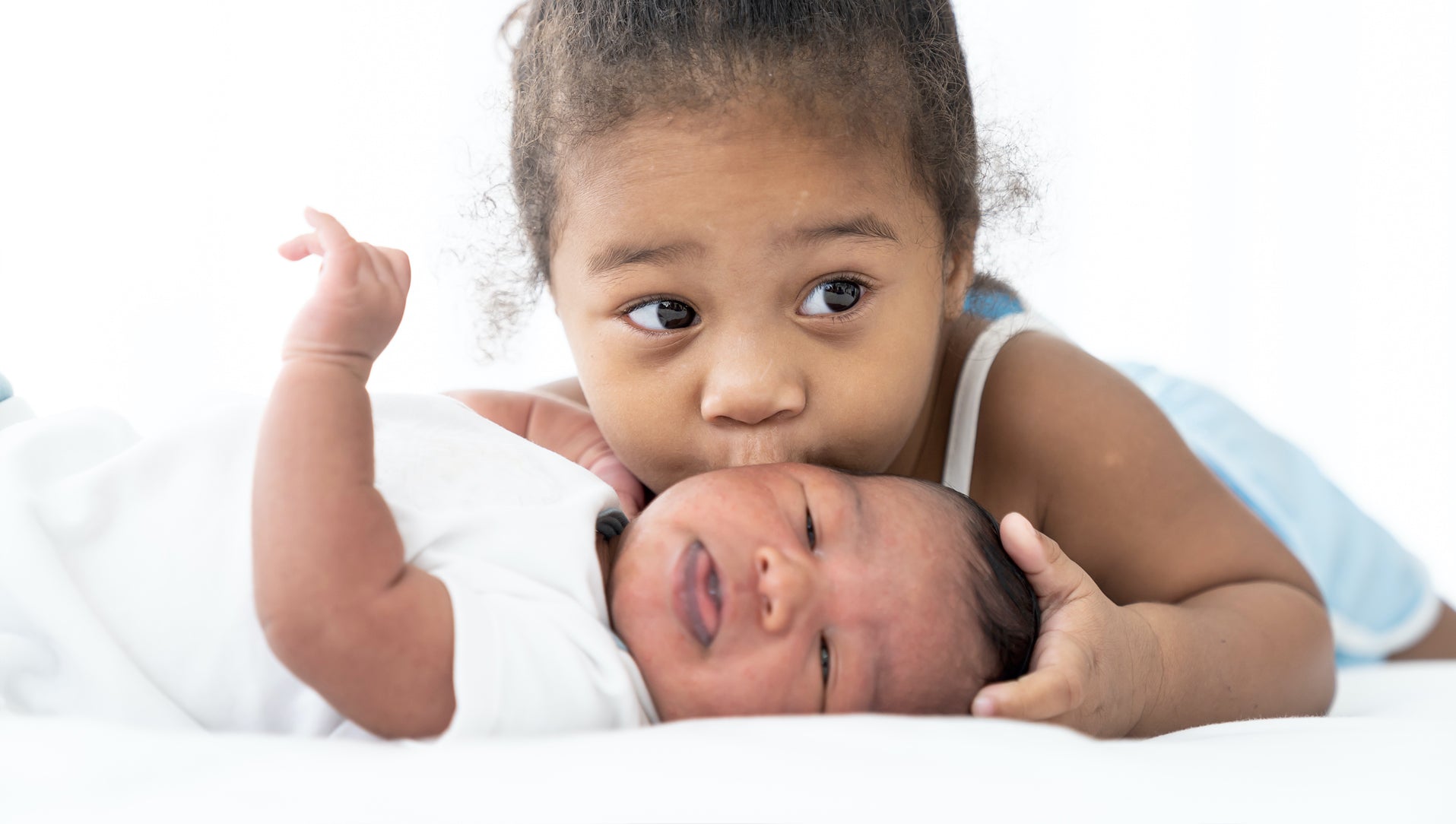Introducing the New Baby to Your Toddler
•Posted on May 27 2021

Bringing home a new baby, while wonderful, is pretty challenging (understatement of the century). With your first child, you're still figuring out the ropes and wondering where the heck the manual is for this thing. The second time around, you know what to expect, more or less, with the new baby. The challenge presents itself in the form of an adjustment process for your first child.
This can be tricky since child number one will be used to receiving all the attention, affection, and resources from you and your partner. It's normal for there to be an adjustment period; it's even normal for your older child to experience some jealousy and hurt feelings. How you and your partner handle the transition can make all the difference in the world.
Prepare ahead of time
To facilitate the bonding process, start introducing your first child to their new sibling while baby brother or sister is still in your tummy. Have them put their hand on your belly when the baby is kicking and let them know that soon their little brother or sister will be joining the family. If your child takes an interest, you can also have them help decorate or set up the baby's room so they feel like they're a part of the welcome home committee.
Build that older sibling pride
Invite your older child over to snuggle with you and the baby, and take the moment to introduce baby to their big brother or sister. Tell baby how wonderful their older brother or sister is and how you hope that they'll aspire to be like them as they grow older. This will instill pride in your older child and will help set them up to be a good role model.
Encourage, but don't force, bonding
Invite your older child to hold the baby (if they're old enough to do so), instructing them on how to hold the baby's head up. It's said that babies' heads give off pheromones, so snuggling with a baby will lead to feelings of love and protectiveness, helping the bonding process.
Make sure they still feel valued
Just because there's a new little person in the house, that doesn't mean that your older child is any less important. You know that, of course, so don't be shy to remind them if they're feeling uncertain. Commenting on their good traits and qualities and the things that you love about them will remind them that they have an important role in the family.
Only one transition at a time
Any other big life transitions like potty training should either be attempted before the arrival of the new baby, or should be postponed until the adjustment period is over. This may already be a time of stress for your older child, so there's no need to add any more discomfort or uncertainty while they adjust.
Expect regression
Which also leads us to… possible regression. With the arrival of a new baby, your child may start wetting the bed again, or sucking their thumb. Do not, I repeat, do not admonish them. These are most likely signs of stress due to the big transition, so the worst thing you could do is get mad at them. Instead, if you see these signs, give them more attention and affection to help them through this adjustment period.
While these are all good rules of thumb, some of these suggestions are also age dependent, and your child may react differently depending on what age they are when their younger sibling arrives. If your child is two or younger, they may not even really be aware of the transition, or they may not understand it. In this scenario, you can still talk to your child about the new baby and read them picture books about having a baby sibling. If your child is aged two to four, they may experience more jealousy since they're still very attached to their parents and are used to receiving all the attention. Encourage them to participate by shopping for the new baby's clothes and toys, and read to them about becoming a big brother or sister. School age children might also feel some jealousy about how much attention their new sibling is getting, especially when they've been the only child for so long. For older children, it is especially important to give them praise and affection, and to bolster the idea of being a good role model.
The bottom line is that it's normal for children of any age to feel some jealousy or discomfort when welcoming a new baby into the family. Recognizing that this is normal and letting your child feel their feelings is important, as well as bolstering their sense of belonging within the changing family. It may be a delicate dance at first, but with some affection and care, you'll soon have a house full of happy campers again!